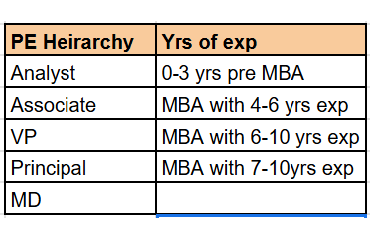
Recruitment is often seen as a structured, well-planned process—a dance between employers and job seekers, each evaluating the other until they reach an agreement. But every once in a while, a situation arises that makes recruiters question everything.
This is one such case. A candidate so eager, so persistent, that she seemed like the perfect hire—until she disappeared.
---
The Ideal Candidate—Or So It Seemed
As a recruitment consultant, I’ve seen my fair share of interested candidates. But this one stood out. She showed an almost unmatched enthusiasm for the role, never hesitating to participate in interviews, complete tasks, and follow up—multiple times a day. Her energy was contagious, and her persistence indicated that she truly wanted this opportunity.
However, things weren’t moving at the usual pace. The hiring team was deeply engaged in an IPO process, causing some unavoidable delays. Yet, her repeated follow-ups reassured us that she remained highly interested. Seeing her enthusiasm and recognizing her potential, we escalated her case to the hiring team and secured her offer letter.
At this point, it seemed like a win for everyone.
---
The Negotiation Rollercoaster
What followed was an intense back-and-forth. She negotiated her offer three times, each time pushing the company to meet her expectations. The hiring team, recognizing her talent and potential, obliged. By the third round of negotiations, I had built a strong rapport with her. She assured me—no, Promised me—that she would accept the final offer.
And so, with her enthusiastic confirmation, we proceeded. The final offer letter was rolled out, and the company expected her to sign.
---
The Moment of Silence
Then came the real shocker.
The once-eager candidate, the one who had persistently followed up multiple times a day, went silent.
No responses to calls. No replies to texts. Nothing. It was as if she had disappeared from the face of the earth.
At first, I gave her the benefit of the doubt. Maybe she was caught up with something. Maybe she needed time to process. But as days passed, my concern turned to disbelief. I reached out every day, hoping to get even a brief acknowledgment. After nearly two weeks of continuous attempts—personal messages, polite requests, professional emails—she finally answered.
But something had changed.
---
A Different Person Altogether
The person on the other end of the call was not the same enthusiastic candidate I had known. There was an unfamiliar coldness in her voice. I wasn’t asking her to join—I simply wanted clarity on why she had gone silent after all the negotiations and commitments.
Instead of giving a direct answer, she began nitpicking small details in the offer—details that had been agreed upon earlier. When I assured her that any minor concerns could be resolved, she abruptly shut down the conversation.
Her reason for rejecting the offer? The discussion had gone back and forth too much.
Wait, what? The same back-and-forth that she had initiated? The same multiple rounds of negotiations that she had insisted on? And now, suddenly, the company was to blame for something she had actively driven?
---
When a “No” Becomes a Disappearing Act
Let’s be clear: declining an offer is normal. Candidates have every right to choose what’s best for them. Offer shopping happens—just like companies aim for cost optimization. However, there is a right way to do it.
What went wrong in this case wasn’t the rejection itself. It was the way it was handled.
- Dragging it out unnecessarily – If she wasn’t sure, she could have voiced her concerns earlier instead of leading us through multiple negotiations.
- Ghosting the hiring team – After being so proactive in following up, suddenly disappearing without an explanation was unprofessional.
- Shifting the blame – Instead of taking accountability for her change of heart, she placed the blame on the very process she had driven.
Recruitment isn’t just about companies hiring candidates—it’s about building relationships. And in any relationship, communication is key.
---
The Takeaway: Be Honest, Be Transparent
If you’re a job seeker, remember: it’s okay to change your mind. But dodging recruiters, ghosting hiring teams, and blaming others for your indecisiveness can burn bridges you might need in the future.
For recruiters and employers, this is a reminder that nothing is certain until the candidate officially joins. A strong rapport, repeated assurances, and enthusiastic follow-ups mean nothing unless there’s actual commitment.
---
Where Do You Think We Should Have Drawn the Line?
In hindsight, should we have stopped entertaining negotiations after the second round? Should we have questioned her intent earlier?
Where do you think we should have taken a call in this process? Let us know in the comments!
Don’t stress about searching every career page or job site. Stay ahead with the latest opportunities from different sources right here!
Related Articles
You've gone through an education system that probably never taught you anything about professionalism, logical deconstruction, and comfort with ambiguity. You may have tremendous bookish knowledge, but lacking these three attributes is an immediate invisible red flag that will stop you from getting the job or the promotion you always wanted.
Let's throw some light on the top-5 common mistakes that highlight your lack of these attributes, and what you should be doing instead
- Showing up late without informing your interviewer/coordinator - there are genuine reasons one could be running late, but that needs to be duly communicated ahead of the planned interaction. Inform every marked on an invite, drop a text or give a call, but keep your stakeholders informed. Their time is as much valuable as yours.
- Turning up unprepared for the interview - if you are turning up unprepared, why is it that you are turning up at all? why waste your and interviewer's time? You are better off declining the opportunity, instead of ruining your reputation unnecessarily. You must invest 1 hour to read about the company, the opportunity, some information in the public domain and so on, if you have chosen to show up for an interview.
- Going silent instead of communicating effectively with your stakeholders - it might come as an insight but everyone knows you would evaluate multiple opportunities before chosing one, everyone knows that your decision might be influenced by your loved ones, and everyone is okay with your being unsure, but nobody likes to be left wondering about what might be happening. So, good, bad or ugly, communicate, communicate and communicate! You'll build more relationships that you ever thought, and you never know, one or more of these relationships may turn gold in the times to come.
- Rambling stuff that does not make sense - let us fill you in on another secret, nobody - not even the most successful individuals can know everything about everything in the world. So, when presented with topics/questions you have no clue about, you got to either draw parallels from what you have expertise on, rationally break down the information you are presented with to come up with simple yet logical answers, or admit you do not know anything about this but can talk about something relevant to the opportunity being discussed in detail.
- Demanding a bomb without a concrete rationale - the whole world is underpaid, friends! who doesn't want more, but that's not how it works. Your next compensation cannot ignore your current and/or previous compensations. If you chose to take a sabbatical, took an opportunity by taking a haircut, or become an entrepreneur that eventually did not work out, you have to make peace with your decision. Nobody else had a say in that! You can definitely demonstrate additional skills/knowledge that you acquired during this period (that surely has a value), but that value isn't the only figure on which your next compensation will be decided on. So, learn about the market standards and try to limit your ask within the broadly acceptable range.
Let’s be honest — job hunting today feels like swiping right on a dating app where no one ever replies. Employers can’t find the right talent, job seekers chase ghost listings, and somewhere between “We’ll get back to you” and “Position closed,” everyone loses their sanity.
Enter Aplushub — the career saver we didn’t know we needed.
Why Aplushub Exists
Born from the chaos of the modern job market, Aplushub was built on one bold idea — quality over quantity. It’s not just another job portal flooding you with random roles. It’s a curated ecosystem that blends AI precision with human insight to filter out the clutter and keep only what truly matters: authentic, relevant, and verified opportunities.
What It’s Solving
Aplushub is tackling the biggest pain in job search — noise. Fake jobs, expired links, spam recruiters, and endless scrolling are replaced by clean, credible listings. The platform categorizes openings into Free Jobs (posted directly by employers) and Premium Jobs (handpicked by Aplushub’s research team from trusted sources and networks). So, no more digital wild goose chases — only jobs worth your time.
Remote Jobs? Absolutely.
Whether you’re working from your couch in Chennai or a café in Manali, Aplushub’s got you covered. The platform features a dedicated Remote Jobs section — tailored for professionals who value flexibility. It connects you with employers who believe talent shouldn’t be tied to geography.
Why It’s a Win-Win
For job seekers, Aplushub is your career compass — one dashboard, hundreds of genuine opportunities, and no shady “DM for job” drama.
For employers, it’s a hidden gem. Posting is free, candidate access is simple, and you get applicants who are genuinely interested — not bots in disguise.
Bonus Perk: The *OpenBook* Advantage
Here’s where Aplushub really flips the script — OpenBook, its transparency-first feature. It gives job seekers a peek into real hiring insights, company trends, and recruiter updates, turning job search into a smarter, more informed experience. No more guessing what employers want; OpenBook hands you the inside scoop to make data-backed career moves.
The Price Tag (Spoiler: It’s Almost Free)
Aplushub keeps things real and affordable. You can explore its free tier, test-drive premium access with ₹50/Month, or go all in with ₹499 for a full year— basically less than your monthly coffee budget to land your next big opportunity.
So whether you’re hiring, hunting, or just tired of the chaos — Aplushub is here to bring sanity (and a smile) back to your career journey.
👉 Visit AplusHub.com — where jobs finally make sense.
Private Equity (PE) is one of the most coveted industries in finance. One of the highest paying industries, Private Equity (PE) attracts absolute creme-de-la-creme of MBA graduates, management consultants, and investment bankers. Also highly competitive, PE funds hire only a handful of investment professionals across levels in a year.
A+ research team has spoken to multiple PE professionals across domestic and global PE funds in India. In the table below, we have compiled average base compensation, variable (bonus) and carry components at blue chip global PE funds in India.
| Role | Yrs of exp | Large Global PE Funds (base salary) | Bonus (as a % of base) | Carry | |
| Analyst | 0-3 yrs pre MBA | $60K-$80K | 60-100% |
Notional Carry or LTI or Certain bonus is paid in the form of carry distribution in case of multi-billion dollar funds*
|
|
| Associate | MBA with 4-6 yrs exp | $100K-$150K | 80-100% | ||
| VP | MBA with 6-10 yrs exp | $200K- $250K | 90-120% |
Estimated 0.5%-2% of the carry pool for a multi billion dollar fund*
|
|
| Principal | MBA with 7-10yrs exp | $300K-$400K | 90-120% | ||
| MD | $500K+ | 100-150% | |||
| Notes: |
These figures are estimates of salaries at top global PE funds like Bain, Carlyle, TPG, Warburg Pincus, General Atlantic and the likes
|
||||
|
Buyout focused funds have 30-50% higher base salaires and respective bonuses
|
|||||
|
*These are estimates from the information gathered through our network; might change/vary with more data
|
|||||




